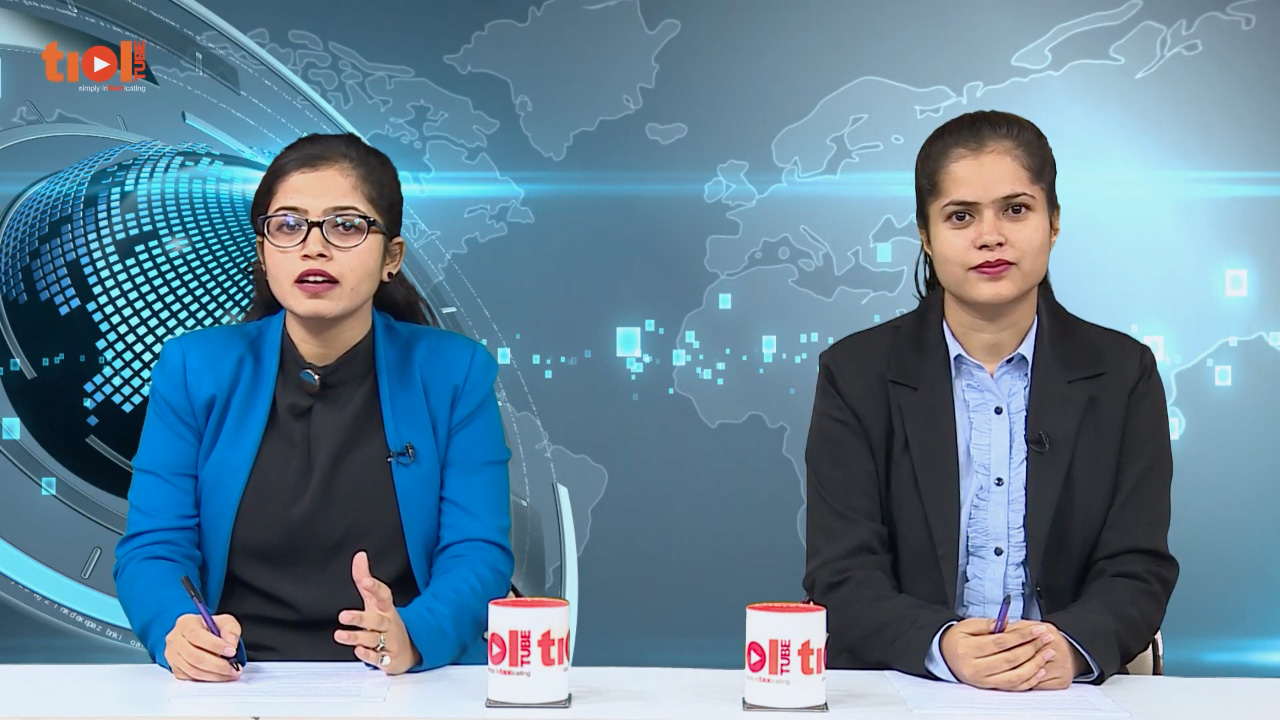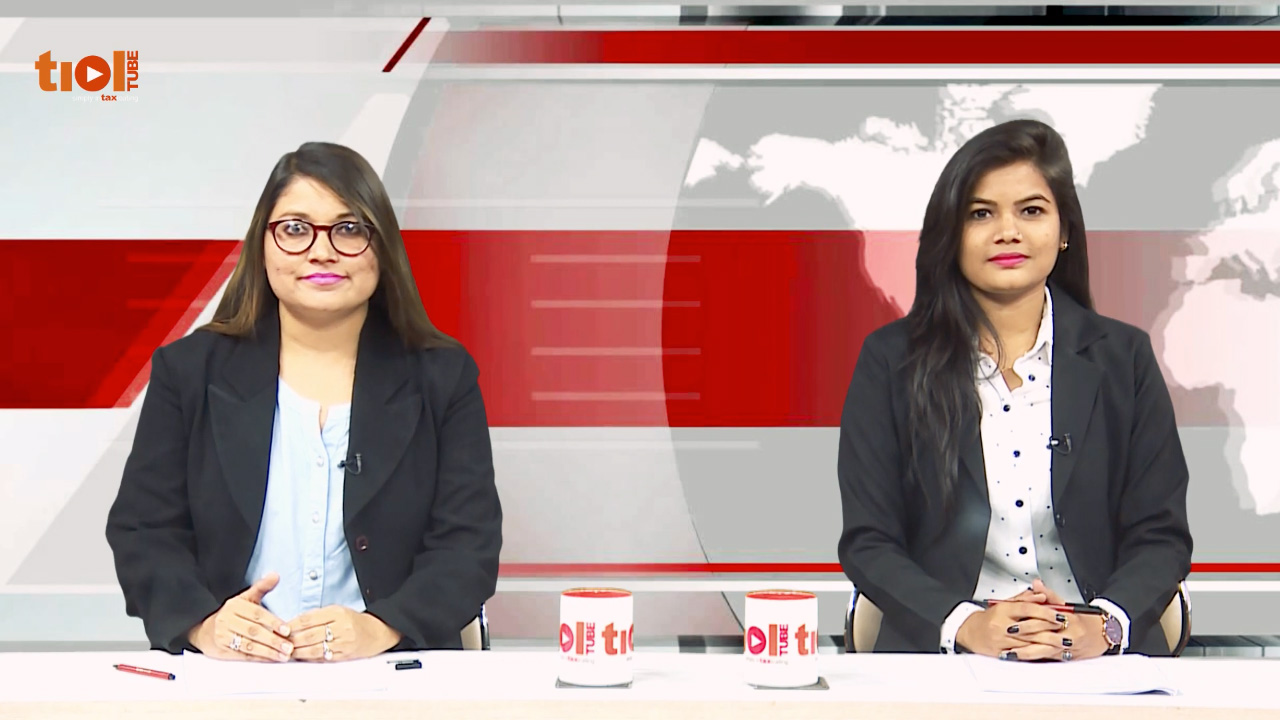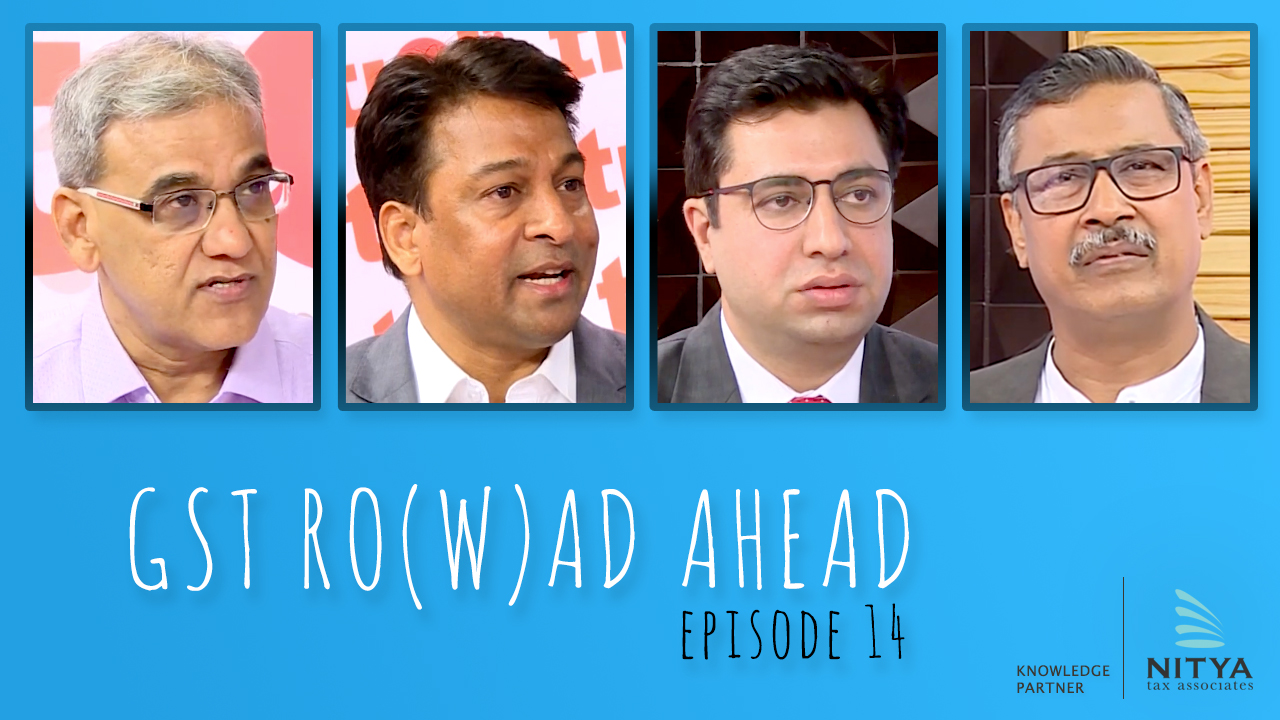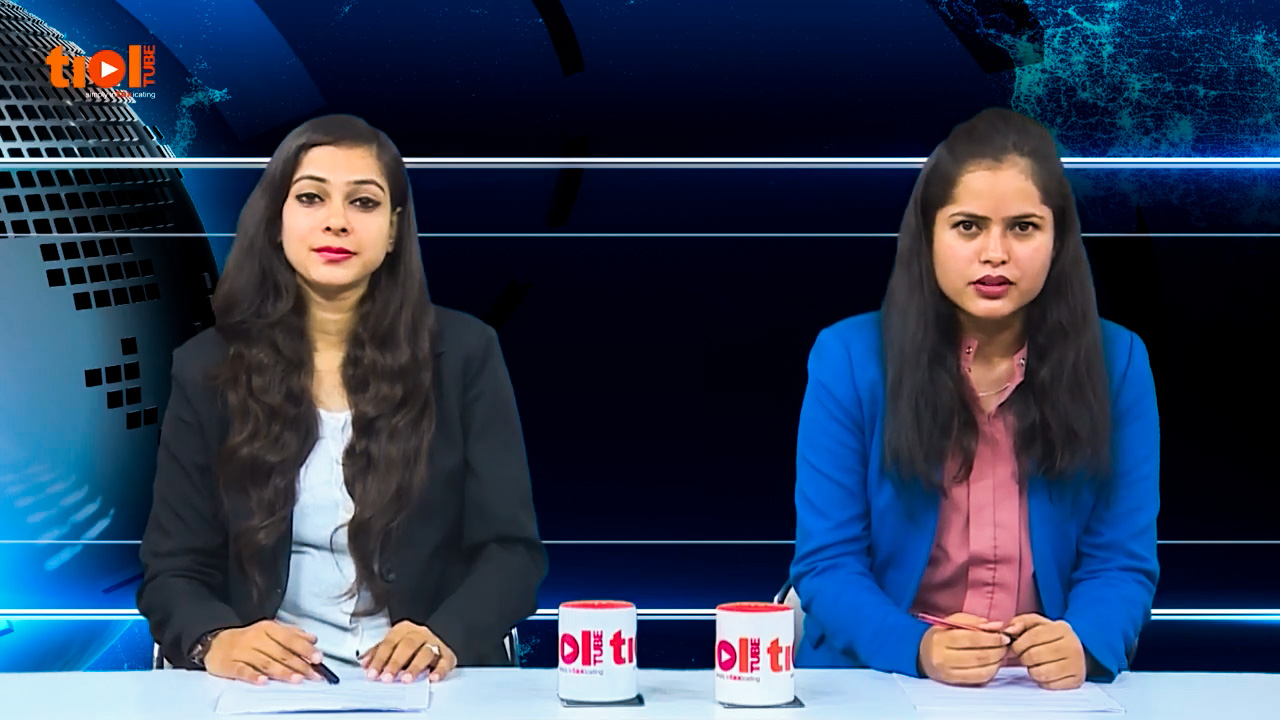|
SERVICE TAX
2019-TIOL-2913-CESTAT-MUM
MSM Discovery Pvt Ltd Vs CST
ST - Acting on the intelligence that appellants were indulging in evasion of ST by not paying service tax on "subscription fees" collected from Multi System Operators [MSOs] and Cable Operators [COs], investigations were initiated against them by DGCEI - on conclusion of investigations, SCN dated 23.4.2012 was issued to the appellants to show cause as to why (i) extended period under sub section (1) of section 73 of the Finance Act, 1994 [Act] should not be invoked to demand ST evaded by them (ii) the services provided by them in relation to distribution of television channels belonging to MSMPL and Discovery Communications India [DCI] should not be classified under "broadcasting service" (iii) ST of Rs.134.61 crores not paid by them on "broadcasting service" provided during the period 1.10.2006 to 31.1.2010 should not be demanded and recovered from them - (iv) interest should not be recovered from them and (v) penalties should not be imposed upon them - vide impugned order, demand confirmed [along with interest], equivalent penalty imposed, hence appeal before CESTAT.
Held: The case of the Revenue against the appellants is that in respect of the subscription charges not remitted to MSMPL and DCI, the appellants have paid the ST declaring the service provided as "Broadcasting Agency Services" - however, in the case of amounts remitted to MSMPL and DCI, appellants have not paid the ST under the same category even though the amounts recovered as subscription charges were recovered against the same invoice, without indicating any bifurcation - hence, revenue contended that appellants should have paid the ST on gross invoice value towards subscription charges - appellants contend that in respect of the amounts remitted to MSMPL and DCI, the entire amount of subscription including the ST collected from the subscribers have been remitted to them - in turn, MSMPL and DCI have paid the ST on the amounts remitted to them by the appellants under the category of "Broadcasting Agency Service" - it is the claim of appellants that the services provided by them as commission agent are covered by the definition of ‘business auxiliary services' as they have provided the services on behalf of their client namely MSMPL and DCI, and also they collected the subscription charges including ST against the provision of such services from the MSOs/ COs - for the provisioning of such service for and on behalf of their principals i.e. MSMPL and DCI, they have received the Commission on which they have discharged the ST liability - for the broadcasting services provided by their principals, their principals have discharged the ST - it is found that Commissioner has not considered the above argument of the appellant and brushed aside the same stating that there is nothing on record to show that appellants have acted as agent of MSMPL and DCI - this finding recorded by the Commissioner brushing aside the arguments of the appellants is without any basis and consideration of the agreement dated 5.8.2002, by which the Joint Venture Vehicle (MSMDPL was created) and the agreements entered between the appellants and MSOs/ COs, the declaration made on the invoices issued by the appellant for collection of subscription charges - the finding recorded by the Commissioner has been recorded ignoring the fact that appellants were paying ST on the Commission received by them from their principals under the category of Business Auxiliary Services - the findings recorded by the Commissioner in this respect needs to be set aside and matter remanded back to him, to consider all the documents and arguments advanced by the appellants in this respect - the second limb in support of the demand made is that appellants were paying the ST in respect of the subscription charges collected in respect of the channels distributed by the TV Today Network under the category of "Broadcasting Service" - this argument advanced by the Revenue in support of the demand made needs to be reconsidered specifically by referring to the business models adopted by the appellants for extending the services to service recipients i.e. MSOs/ COs - secondly, a categorical finding needs to be recorded whether in case of TV Today Network, whether TV Today Network was discharging the ST liability on the services provided by them for which appellants were collecting the subscription charges under the category of Broadcasting Services as was the case in respect of services provided on behalf of MSMPL and DCI by the appellants - in absence of any finding recorded in this regard, Commissioner has proceeded to confirm the demand by comparing two un-comparables i.e. oranges with apples - ST being contract/transaction based levy the terms of contracts between the parties to the contract need to be examined and finding recorded before any demand can be made - the matter needs to be remanded back to adjudicating authority for recording finding on this account also - since the above two issues strike at the root of the matter, the Bench is not rendering any finding on the other issues raised by the appellants at this stage - appellant can raise all the issues before the adjudicating authority in de novo proceedings before the Commissioner - in view of the above, appeal is allowed and matter remanded back to adjudicating authority for de novo consideration - all the issues raised in the SCN are kept open and should be considered afresh by the adjudicating authority: CESTAT [para 5.6, 5.8, 5.9, 5.10, 6.1]
- Appeal allowed by way of remand: MUMBAI CESTAT
2019-TIOL-2906-CESTAT-MUM Vridheshwar Agricultural Produce Transport Pvt Ltd Vs CCE
ST - Appellant has challenged the impugned order which has upheld the finding of lower authority that the activity rendered by the appellant is that of provider of 'manpower recruitment and supply of manpower services' to confirm tax liability - appellant contending that farmers organized as societies or companies, enter into an agreement with the sugar factory for undertaking the harvest and transportation of the harvested cane to the sugar factory - as the mechanism of 'support price' is paid out subsequently, the recipient sugar factory advances a part of such future receipts as a bridge finance which has become the subject of tax dispute in these proceedings on the ground that it is consideration for providing of 'manpower recruitment and supply agency services'.
Held: Issue has been settled by the decision of the Bombay High Court in the case of Shri Samarth Sevabhavi Trust [2016 (41) STR 806 (Bom)] - t he facts and circumstances of the present case are identical in that it is for, and on behalf of, the sugarcane growers that the sugar factory entered into an agreement as custodian of the dues payable to the farmers for the harvesting and transport to the factory is not 'manpower recruitment and supply agency services' - accordingly, the appeal is allowed : CESTAT [para 5, 6]
- Appeal allowed: MUMBAI CESTAT
2019-TIOL-2905-CESTAT-MUM
Warburg Pincus India Pvt Ltd Vs CST
ST - Appellant is a company engaged in providing business advisory services, solely to M/s.Warburg Pincus, USA - vide impugned order, refund of unutilized CENVAT credit of ST of Rs.12.00 lakhs paid on ‘club and association services' was refused to the appellant.
Held: In the appellant's own case - 2018-TIOL-1229-CESTAT-MUM Zonal Bench of Mumbai had made an observation that the services in question were directly used by the service provider and credit was, therefore, admissible - in the judgment of Telco Construction Equipment Co. Ltd. - 2013-TIOL-1942-CESTAT-BANG , relied upon by the Commissioner (Appeals), it is seen that denial of such input of Club and Association Services was made on the basis of the findings that Corporate Membership was taken in Bangalore Club but appellant therein failed to substantiate that the membership was taken for official purpose or was related to business activities for which the decision of the Commissioner holding that membership was taken for the employees was held tobe valid -in the instant case, on the other hand the Commissioner had not disputed that the membership was not taken for business activities of the appellant but he accepted the contention of the appellant in para 3(ii) of his order that respondent was required to get proper statistical data for proposed investment opportunities and the same can be gathered through participation in associating itself in any organisation/business forum/trade association -in the circumstances, and in carrying further judicial precedent as well as in furtherance of maintaining certainty and predictability in the decision making process that had held the eligibility of credit on such input service as admissible in the appellant's own case, the appeal is allowed and the impugned order is set aside - appellant is entitled to get refund of Rs.12.00 lakhs with applicable interest : CESTAT [para 6, 7]
- Appeal allowed: MUMBAI CESTAT
CENTRAL EXCISE
2019-TIOL-2904-CESTAT-MUM
Western Coalfields Ltd Vs CCE
CX - This appeal assails the denial of CENVAT credit of duties paid on 'plates, angles, beam, bars, etc.' falling under chapter 72 and 73 of the CETA, 1985, for lack of conformity with the definition of 'capital goods' in rule 2(a) of CENVATCredit Rules, 2004 [CCR] or of 'inputs' in rule 2(k) of CCR - whether a support provided to a roof is intended to be covered by the term 'civil structure'.
Held: Plea of the appellant that the inputs, used in the maintenance and repair of equipment and plant and machinery in the workshop, are eligible had been decided against them on the ground that specific details had not been made available to identify the inputs attributable to such maintenance and repair - likewise, on the claim that the inputs were used for manufacture of capital goods there is a specific finding of lack of adequate information to identify the inputs that were employed for such eligible production -had this information been deficient, it was incumbent upon the adjudicating authority to place the appellant on notice of such and require production of data that would satisfy - in the absence of a finding on the extent of eligibility of inputs for availment of CENVAT credit, the Bench is unable to decide on the dispute which is now placed before the Bench -bulk of the demand pertains to the deployment of inputs for roof support and roof stitching and the fabrication/base bed placed for pumps and other equipments -the adjudicating authority appears to believe that the goods used for making base/bed plates for pumps/motors and for fabrication of poles are excluded from the definition of 'inputs' in rule 2(k) of CCR by the subsequent inclusion of the entry in 'B' -'civil structure' is primarily used to house either people or goods or equipments -the roofing in a mine, on the other hand, offers protection from the possibility of mud shifting in the area that has been drilled -it, therefore, hardly conforms to the expression 'civil structure' -moreover, such roofing and stitching in underground mines is a statutory requirement, and the adjudicating authority, while acknowledging it to be so, has disregarded the undeniable essentiality by mere reference to definitions -it is more relevant to ascertain functionality before allowing, or denying, CENVAT credit -it has been held judicially that any statutorily mandated activity is essential for manufacture and hence, the product inputs/input service are eligible for availment of CENVAT credit -accordingly, the denial of CENVAT credit for roofing and roof support and roof stitching has no basis in law -in view of the above, it is necessary for the impugned order to be set aside and the matter remanded back to the original authority for a fresh ascertainment of the entitlement to the extent permissible in accordance with the finding of this Bench : CESTAT [para4, 5, 7, 8]
- Matter remanded: MUMBAI CESTAT
2019-TIOL-2903-CESTAT-BANG
Wave Mechanics Pvt Ltd Vs CCT
CX- Appellant, a 100% EOU, filed refund claims of unutilized/accumulated CENVAT credit in terms of Rules 5 of CENVAT Credit Rules, 2004 read with Notification No.27/2012 dated 18.6.2012 - appellants have filed these appeals insofar as the rejection of cash refund in respect of Gardening/Landscaping services, maintenance of tea and coffee machines, survey of land, design service and retainership fee services.
Held: As far as Gardening/Landscaping services, Design Services, Retainership Fee (Auditor Services) are concerned, they have been held to be input service by the decisions relied upon by the appellant - therefore, the rejection of refund on these services on account of lack of nexus is not sustainable and, therefore, the findings of the Commissioner(A) on these services is set aside - as far as Outdoor Catering Services are concerned, as per the Larger Bench decision in Wipro Ltd., the input service specially excludes it from the definition of input service - as far as the Tea/Coffee Machine Maintenance is concerned, the appellant did not press for this and, therefore, the same is rejected - in view of the above, all the appeals are allowed to the extent discussed above and all the appeals are remanded back to the original authority for quantification and sanctioning of refund - accordingly, all the appeals are allowed by way of remand : CESTAT [para6, 7]
- Appeals allowed by way of remand: BANGALORE CESTAT
2019-TIOL-2902-CESTAT-ALL
Hi Tech Hospital And Healthcare Corporation Ltd Vs CC, CE & ST
CX - The assessee is engaged in manufacture of disposable syringe as also syringe components - Whereas the complete syringe attracts duty of excise, parts and components of syringes are entitled to benefit of Exemption Notfn 6/2006-CE - Revenue entertained a view that parts of syringes were being cleared by assessee to only two companies of assessees group at Gorakhpur and Guwahati - Inasmuch as the names of said buyers were printed on packaging material sold with the goods it has to be held that assessee was clearing complete syringes, which were liable to duty of excise - Proceedings were initiated by way of issuance of SCN raising demand of duty - The assessee contested the demand on merits as also on limitation - However, the Original Adjudicating Authority did not find favour in the same and confirmed the demand alongwith confirmation of interest and imposition of penalty of an identical amount - If the Jurisdictional Commissioner (A) has held the processes undertaken at the buyer's premises as amounting to manufacture, it has to be held that the manufacture of the complete syringe takes place at the buyer's premises - In such a scenario, it cannot be held that what was being cleared by assessee was a complete syringe - The findings of Lower Authorities are only based upon the fact that the packaging material sent by assessee alongwith various parts of syringe bears the name of buyer's unit - The matter has not been investigated thoroughly and the various submissions made by assessee has not been adverted to by the Lower Authorities - Apart from holding in favour of assessee, the entire demand is barred by limitation having been raised beyond the normal period - The issue involved is bona fide issue of interpretation and inasmuch as the various parts cleared by assessee were undergoing further processes of manufacturer at the buyer's premises, assessee cannot be held guilty of non-payment of duty by way of any suppression or misstatement - As such, the demand is also time barred - The same are accordingly set aside by setting aside the demand of duty alongwith interest and the penalty imposed upon assessee: CESTAT
- Appeal allowed: ALLAHABAD CESTAT
CUSTOMS
2019-TIOL-2361-HC-MUM-CUS Imran Latif Shirgawkar Vs DRI
Cus - Petitioner is presently in judicial custody pursuant to his arrest under section 104 of the Customs Act, 1962 [Act], on the allegations of having committed an offence punishable under section 135(1)(i) of the Act - while in custody, but before filing criminal prosecution in the said case, the petitioner has preferred an application for compounding of the alleged offence before the compounding authority under section 137(3) of the Act - petitioner has prayed for issue of (i) order or direction restraining the respondent no.1 from filing any criminal prosecution qua the petitioner under the provisions of the Act for alleged compoundable offence (ii) order of direction directing the respondent no.3 to expeditiously adjudicate the petitioner's application for compounding of alleged compoundable offences (iii) order or direction granting bail to the petitioner.
Held-
+ Bench is unable to accept the contention of the Respondent-DRI that even if prohibited goods are not those which are notified under sub-clause (c) of clause (i) of section 135(1) and are only notified under section 11, that would be sufficient to invoke subsection (6) of Section 104 - Such an interpretation would render the words "which are also notified under sub-clause (C) of clause (i) of section 135(1)", in sub-section (6) as redundant and nugatory - Such an interpretation is contrary to all cannons of law: High Court
+ Counsel for the Respondent-DRI, however, does not dispute that exotic monkeys are not covered by Schedule-II of the Indian Wildlife (Protection) Act, 1973 and that no offence under that Act is alleged: High Court
+ The provisions which relate to personal liberty and fundamental rights guaranteed under Article 21 of the Constitution of India cannot be interpreted in such a manner as is being suggested by the Respondents - the Bench is, therefore, clear that section 104(6)(b) is not attracted in the case of exotic animals - consequently, it is held that the offence alleged against the petitioner would fall under section 104(7) of the Act and thus shall be bailable - it is found that the petitioner is languishing in custody in a bailable offence since 13th September 2019; the remand has been obtained without disclosing that there is no notification under section 135(1)(i)(c) of the Act specifying the exotic animals as prohibited goods and the alleged offence is bailable - in a bailable offence, the question of Court/Magistrate remanding the citizen to judicial custody without offering bail does not arise - a clear case for breach of provisions of Articles 21 and 22 of the Constitution of India is, thus, made out - the Bench, therefore, has no hesitation in holding that not only the petition is maintainable but also the petitioner is entitled to be released on bail - from the contentions of respondent-DRI in remand application, the counter affidavit and submissions advanced, no statutory bar found in filing or entertaining an application for compounding under section 137(3) of the Act in respect of exotic animals - there is no seizure of exotic animals from the possession of petitioner - the case qua the petitioner is mainly on the strength of statements under section 108 of the Act - burden is on the department to give cogent material in adjudication proceedings: High Court
+ It is not mandatory that application for compounding can only be filed by admitting the guilt - this beneficial provision is also available to prevent needless proliferating of litigation - it is not even case of the Respondent that the instant case falls under any of the disability clauses of proviso to section 137(3) of the Act - no bar on filing an application for compounding before issuance of SCN or adjudication thereof is contemplated in the Act - on the contrary, section 137(3) permits the filing of an application even before the filing of prosecution - it is not the case of the DRI that the prosecution cannot be filed before the issuance of SCN - therefore, there is no bar in filing the compounding application - the prayers of the petitioner seeking direction regarding carrying out of adjudication and considering the application for compounding are reasonable: High Court
+ In the light of above facts and circumstances, the writ petition is allowed by passing following order: (1) the alleged offence qua the petitioner is bailable offence under section 104(7) of the Act - the petitioner, therefore, shall be forthwith released on cash bail in the sum of Rs.50,000/- to be deposited with the Jail Superintendent of Arthur Road Jail, Mumbai in Remand Application No.161 of 2019 of Additional Chief Metropolitan Magistrate, 8th Court, Esplanade, Mumbai (2) the petitioner shall co-operate in the investigation and shall remain present as and when called by the investigating agency - the Petitioner is, however, permitted to have an advocate accompanying him at visible but not audible distance during his investigation by the officers of Respondent DRI and recording of his statement shall be video-graphed in terms of the decision of the Apex Court in Vijay Sajnani v. Union of India [Cri. M. P. No. 10117 of 2012 in WP (Cri.) No. 29 of 2012] and Rajinder Arora v. Union of India [WP (Civil) No. 389 of 2010 order dated 7th December 2010] (3) the adjudicating authority, namely, the Commissioner of Customs (Preventive) shall give SCN to the petitioner, if necessary, and quantify and determine the amount payable as expeditiously as possible so that the same can be paid by the petitioner (4) the compounding authority, namely, the Chief Commissioner of Customs shall thereafter decide the petitioner's application for compounding of the offence as expeditiously as possible and in accordance with law : HIGH COURT [para 14, 16, 18, 19, 20, 22]
- Writ Petition allowed: BOMBAY HIGH COURT
2019-TIOL-2901-CESTAT-AHM Atlantic Shipping Pvt Ltd Vs CC
Cus - During the relevant period, a vessel owned by the assessee-company was boarded by Customs officers - The ship was found to be carrying some quantity of Propane Gas which was not declared either in the arrival report or in the Form - III cargo declaration - Neither the master of the vessel nor the shipping agent could produce the supporting documents for the undeclared cargo, whereupon the cargo was detained - SCN was issued to the assessee alleging that the import contravened the provisions of Section 30 of the Customs Act r/w Regulation 5 of the Import Manifest (Vessel) Regulation 1971, pursuant to which the goods were seized - Statements of the Master of the Vessel were recorded, clarifying that the Propane Gas was meant for cooling the cargo carried by the ship and that he had not declared such gas being under the impression of it being a ship item - On request, the Propane Gas was directed to be released provisionally upon furnishing of bond and security - SCN was issued to the assessee for confiscation of the Propane Gas u/s 111(f) of the Act and proposing penalty u/s 112(a) of the Act - On adjudication, the proposals of the SCN were confirmed, albeit the penalty on the master of the vessel was set aside - Hence the present appeals.
Held - Considering the relevant details furnished by the assessee such as cargo information & pre-loading conditions, there is force in the assessee's claim that Propane Gas is necessary for cooling the tanks in which the cargo is loaded - While Regulation 3 of the Import Manifest (Vessel) Regulations 1971 requires declaration of cargo in Form III and vessel stores listed in Form IV, it is alleged in the instant case that the Propane gas was not declared in Form III - It is apparent that the Propane carried on was not cargo but was ship store - In these circumstances, there was no requirement to include the Propane Gas in the cargo declaration in Form III - The primary objection in the SCN therefore fails - In such peculiar circumstances, the confiscation of the goods cannot be sustained and is set aside - Besides, the order dropping the penalty imposed on the Master of the Vessel, is sustained: CESTAT
- Assessee's appeals allowed: AHMEDABAD CESTAT |
|







